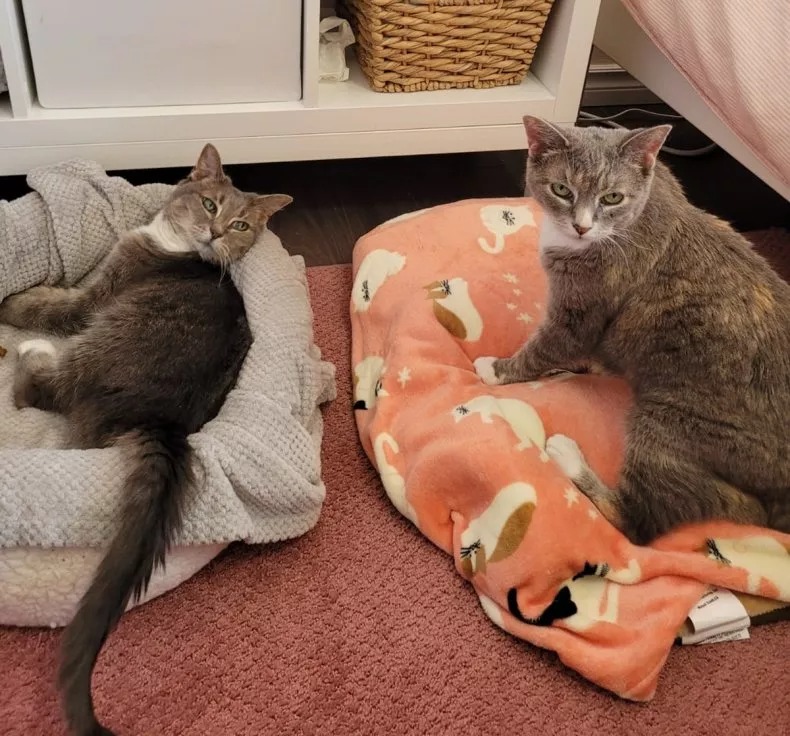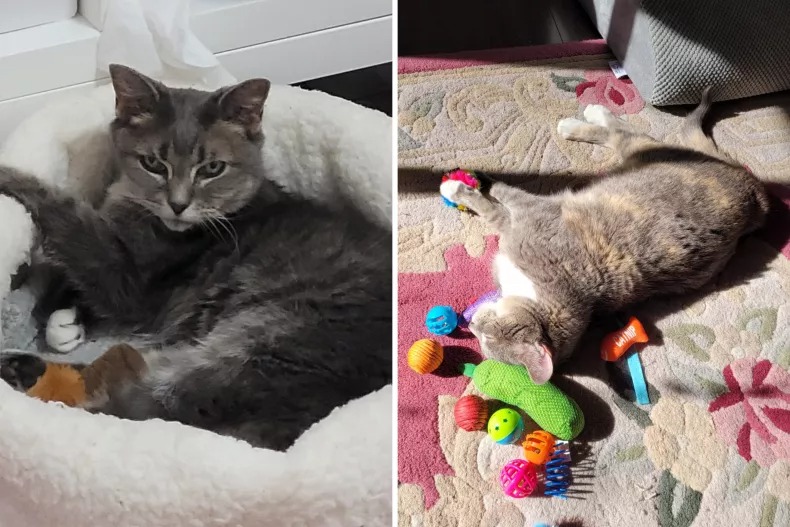The first loss of cats
When Parkinson’s disease began to take over William Rennie’s body, he chose medical assistance in dying (MAID), meaning his beloved 16-year-old cats Shiloh and Belle needed a new home. Newsweek spoke to his daughter Erin, 53, about her 77-year-old father’s decision to “die with dignity” and what it meant for his pets.

“My dad used to tell me that the cats would outlive him and I never believed it, but it was true,” Erin said. Rennie had been caring for the cats since the passing of his daughter Gayle, who owned them before her death from a stroke in her early 30s.

A few years after Rennie’s Parkinson’s diagnosis, his condition worsened, and he chose to utilize the MAID program in Canada, which allows physicians or nurse practitioners to administer a substance that causes death. “He [would] never be trapped in his body as his mind was totally clear, but his body was failing him with a sharp decline in his motor skills, speech, ability to care for himself, swallow, eat, etc.,” Erin explained.
The cats found their forever home
Erin spent 15 hours a week calling animal shelters before discovering MyGrandfather’sCat, a charity that helps seniors and the terminally ill find homes for their pets. The cats were briefly adopted but returned due to the new owner’s allergies. Fortunately, Nikki, 50, and Wayne Slade, 58, read their story and adopted Shiloh and Belle, describing them as the “light of their life.”

“It was heart-wrenching to hear their owner’s story, but it strengthened our belief that we were doing the right thing by providing them with a good home,” Nikki said. While Belle was very attached to Rennie and struggled after his passing, the cats have brought joy to the Slades’ lives.